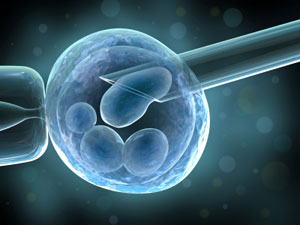First visit to fertility centre – Precautions and Questions to be asked to fertility specialist on first visit – Preparing for First Visit with Reproductive Endocrinologist – Role of Fertility Specialist in the journey of Infertility – Top IVF Clinic, Infertility Specialist in Basrah, Iraq – Steps to be taken care of while selecting Infertility Specialist – Fertility, Infertility Specialist at Al-Manar Fertility Centre – Infertility Clinic, Infertility Clinic and Fertility Specialist – Talk to your Fertility Specialist – Prepare before Visit to an Infertility Specialist.
Coping with infertility is extremely difficult. To become pregnant, the complex processes of ovulation and fertilization need to work just right. For some couples, infertility problems can be present from birth (congenital) or something can go wrong along the way that results in infertility. The reasons for infertility can involve one or both partners.
Being diagnosed as infertile is really a difficult phase in couple’s life. The dream of parenthood gets shattered and it takes time to settle down. Today the new techniques of ART help infertile couples to achieve pregnancy. Treatment of infertility depends on the cause, how long you’ve been infertile, your age and your partner’s age, and many personal preferences. Some causes of infertility can’t be corrected. However, a woman may still become pregnant with assisted reproductive technology. Infertility treatment involves significant financial, physical, psychological and time commitment. Assisted reproductive technology (ART), which leads to the highest chance of pregnancy for most couples, is any fertility treatment in which the egg and sperm are handled.
Deciding to consult a reproductive endocrinologist (also known as an infertility specialist) is an important milestone in the journey towards parenthood. Women over age 35 or who have a history of three or more miscarriages; men with poor semen analysis; and couples who have tried for at least two years to get pregnant, should plan on seeing an infertility specialist.
When a decision is made to start fertility treatments there is lot of things to be done and lot of things to take care of. You and your partner need to be together. Go for all appointments and test together as far as possible. It is always better to decide good fertility clinic. When it comes time to diagnose where the problem may be and suggest solutions, you may wish there were a single doctor you both could see. That’s where the infertility specialist comes in, providing big-picture advice. A fertility specialist may be the most qualified doctor to help you overcome infertility and finally get pregnant.
Precautions to be taken while choosing the right specialist
It’s important to find the right infertility specialist for you. This can be based on a location convenient to you or by reading the specialist profiles to understand their areas of expertise. Your OB-GYN may also suggest you a fertility expert. You can decide on one by talking with friends and relatives about there experience with specific infertility specialist. Once you have narrowed down the right doctor for you, take your first step and make an appointment and personally visit the doctor. Make sure you and your spouse are comfortable with the specialist and their clinic. You should develop a trust in him. Then only proceed. Consider the success rate of the clinic or specialist in achieving the ivf cycle and treatment and in turn successful pregnancy.
Lastly, follow your own instincts. You know your body, and if you are trying month after month and can’t get pregnant, go ahead and make an appointment to see a fertility specialist. Remember, if you’re under 35 and have been trying for more than a year, or are 35 or older and have been trying for 6 months or more, then you should see a fertility specialist right away. This can give you a peace of mind immediately—and hopefully a baby in the near future.
The questions to be discussed with Fertility Specialist.
The first visit to the specialist will last for hour or more. Prepare yourself for the visit and make a note of the questions that you would like to discuss with him. That will save lot of time and will help you in deciding about fertility doctor. Your doubts will get clear and when you walk out of the cabin of the doctor , you are aware of the treatment, your problem and the solutions. The set of questions to be asked includes
- What specific tests would you recommend to diagnose my infertility? How much do they cost?
- Based on the results of those tests, what are my fertility treatment options, and how much do they cost?
- How many ovulation induction (OI) cycles do you recommend before moving to in vitro fertilization (IVF)?
- How many embryos do you transfer per cycle?
- What is the success rate for IVF in terms of live births per embryo transfer for this facility?
- If necessary, can you help me access donor egg, embryo or sperm donor?
- How will I communicate with you during the whole treatment process?
- Does your clinic provide emotional counseling, or can you refer me to a counsell or who deals with fertility problems?
- What can I expect in terms of time commitments and how many visits do you anticipate will be necessary?
- Will I be able to conceive?
- Are there any long-term complications associated with this or other infertility treatments?
For intended parents trying to conceive it is always advisable to take consultation from the infertility specialist rather than to believe in the said things. Today on average, 1.5 million assisted reproductive cycles are performed worldwide. After the meeting with fertility clinic and doctor is over, he may specify a list of test and diagnosis to be made. Talk out the fertility options available for your case and follow the instructions given to you. Remember, everyone at the fertility clinic is there to help you, so take advantage of their knowledge, experience, and expertise – you’re not in this alone.
If you have any questions about your fertility, see your doctor or talk to a fertility specialist. With today’s advanced reproductive technology, you can always find a solution to all the fertility problems. Always be in the hands of expert in the field. Al-Manar Fertility and Endoscopy Center in Basrah, Iraq provides a range of infertility services with an acceptable cost all under one roof. Fertility Program of the center is managed by Dr. Faiz Alwaaely in collaboration with a Turkish team. All monitoring visits are done by the physicians who mean patient will have continual physician contact throughout the cycle. The facility and fertility procedures provided by Al-Manar clinic include in vitro fertilization, inseminations, and all types of reproductive surgery. We have excellent success rates and satisfied testimonials with our couples. As a unified team, guided by the highest ethical standards, Al-Manar provides patients with individualized and compassionate fertility care.
You can meet the team of doctors in Al-Manar at http://almanarfertility.com or schedule an appointment with us over phone at +964 7814444401
Summary:
The initial consultation with infertility specialist is a comprehensive evaluation of your history and medical records. It may last up to an hour. During this visit, you will have the opportunity to have your questions answered by the doctor. Always take precautionary measures while selecting the best fertility clinic and doctor.
Al-Manar Fertility is Top fertility Clinic and Best IVF Fertility Center in Basrah, Iraq. It provides Patient Friendly environment and affordable In Vitro fertilization treatment to Infertile couples in Iraq .Al-Manar Fertility & Endoscopy Center provides world class IVF treatment to its patients in Basrah. We are an infertility clinic specializing in infertility treatments for male and female infertility. Our Services include in vitro fertilization (in vitro IVF), ICSI, IUI, egg donor recipients, and oocyte donors, preimplantation genetic diagnosis(PGD), embryo freezing or cryopreservation, ICSI, and gender selection (boy or girl).







